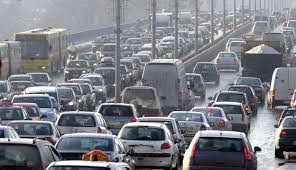
The Lagos State Government has disclosed that residents lose an average of four hours daily to traffic congestion, resulting in an estimated ₦4 trillion annual loss in productivity.
A significant portion of this congestion—particularly along the Lekki-Epe industrial corridor—is blamed on the disorganised movement and indiscriminate parking of tankers and trailers.
The revelation was made on Friday by the Special Adviser to the Governor on Transportation, Sola Giwa, in a statement reported by the News Agency of Nigeria (NAN). Giwa stated that much of the gridlock stems from unregulated parking and disorderly loading and unloading activities on major logistics routes.
To address this, the state government has mandated all tankers and articulated vehicles operating along the Lekki-Epe corridor to register via its Electronic Call-Up (e-Call-Up) system, with enforcement set to begin on June 16.
According to Giwa, the initiative aims to streamline logistics, improve road safety, and restore order on one of Lagos’s busiest freight corridors. Operators will be required to upload their Authority to Load (ATL) documents and pre-book parking slots before entering the city.
The enforcement framework, developed over two years of stakeholder engagement, forms part of the government’s broader transportation reforms. Non-compliant vehicles will be denied access or impounded.
To support the initiative, the state has approved the construction of seven dedicated truck parks along the corridor, each equipped with restrooms, kitchens, and electricity to enhance driver welfare.
The e-Call-Up platform will also collect real-time data on cargo movements and travel schedules, enabling better slot allocation and coordination with industrial zones and the Lekki Port.
The Lekki-Epe corridor houses critical infrastructure such as the Lekki Deep Sea Port, Dangote Refinery, and multiple industrial estates, which have led to increased truck traffic and worsening congestion.
Although enforcement on the Lekki-Epe axis is new, the e-Call-Up system was first introduced by the Nigerian Ports Authority in 2021 for the Apapa and Tin Can port corridors. It was initially launched on the Lekki corridor in September 2024 but suspended in March 2025 after consultations with stakeholders.
With enforcement now set to resume, the state government is signaling a renewed commitment to reducing the economic losses caused by unregulated truck operations.
